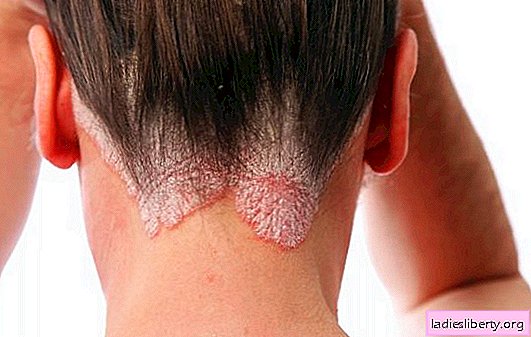
Ethanol intoxication leads among all domestic acute poisoning. Excess of a normal dose of alcohol leads to poisoning.
According to statistics:
• alcohol is 25% of all acute poisoning;
• of which 60% of cases are fatal;
• In 90%, death occurs before the doctor arrives.
The lethal dose of ethanol is 4-12 g per 1 kg of weight. These numbers are a value calculated for a healthy person. In the presence of chronic diseases, it may be different.
Alcohol tolerance
In chronic alcoholics, the lethal dose of ethanol is not comparable to that defined for healthy people, their body processes a much larger amount of alcohol. With a constant intake of alcohol, even in small doses, addiction and dependence develops.
Tolerance to alcohol is different for everyone, depends on:
• gender;
• race;
• weight and height;
• quantity and strength of alcohol consumed.
In general, tolerance to alcohol depends on the presence and activity of the enzyme alcohol dehydrogenase. Alcohol dehydrogenase is involved in the oxidation of ethanol with the formation of toxic acetic aldehyde, which is converted in subsequent reactions into acetic acid.
Alcohol intoxication is estimated in ppm (% 0) - the ratio of the volume of pure alcohol and the volume of blood (or urine). 1% 0 means the content in 1 liter of blood 1 g of pure ethanol.
Ethanol poisoning - the first signs
The first signs of ethyl alcohol poisoning occur 20 minutes after drinking an alcoholic beverage. After 1.5 hours, the amount of alcohol reaches a maximum. Ethanol poisoning in the home is called alcohol intoxication.
Signs of intoxication are always individual and appear depending on the quantity and quality of alcohol drunk within an hour. It is known that in a healthy person, the liver neutralizes 0.5 liters of light beer in 60 minutes. If a much larger amount is drunk during the same hour, a toxic effect is exerted on the whole organism.
A tall, large person gets drunk less than a stunted person with a small weight with an equal amount of alcohol drunk.
Metabolic features
Carbonated alcoholic beverages are absorbed into the blood faster, therefore, poisoning occurs earlier.
20% of the alcohol is immediately absorbed in the stomach and 80% in the small intestine.
Food slows down the absorption of alcohol.
Accelerates absorption:
• fasting alcohol intake;
• repeated intake of alcohol;
• the presence of diseases of the stomach: gastritis, peptic ulcer.
10% of alcohol is excreted through the lungs in an unchanged form, as well as through the skin and kidneys; 90% - is oxidized.
All symptoms of ethyl alcohol poisoning: mild
A mild degree of poisoning (the amount of alcohol in the blood - from 0.2% 0 to 1.5% 0) is manifested:
• hyperemia of the skin;
• discoordination of movements (inhibition of spinal reflexes occurs);
• general hyperhidrosis (sweating);
• cheeky behavior;
• excessive talkativeness;
• reassessment of personal opportunities.
Wherein:
• attention is sharply reduced;
• sensitive perceptions are difficult;
• analgesia develops - pain sensitivity sharply decreases;
• memory weakens.
There is no threat to life, but given that alcohol is excreted from the body at a rate of 0.15% 0, sobering will occur at least 4 hours later.
All symptoms of ethyl alcohol poisoning: moderate
With moderate severity of poisoning, the toxic effect of ethanol on the nervous system is manifested: aggressive behavior, incoherent speech, uncontrolled actions appear. In an excessive dose, excitation is replaced by inhibition - sleep sets in.
Severe poisoning
In severe poisoning occurs:
• loss of consciousness, breathing problems;
• vomiting, involuntary bowel movements and urination;
• prolonged cramps are possible.
The face becomes cyanotic, a frequent thread-like pulse, pressure drops sharply, breathing is absent, dibo is intermittent, superficial, rare. The determined concentration of alcohol in the blood is 3-5% 0, in the urine - 6% 0.
In the case of severe poisoning, a person quickly goes through all stages of alcohol poisoning and falls into a coma.
Alcohol coma
With a coma, there is no reaction to external stimuli (the pupils do not respond to bright light, there is no reaction to pain). Urgent resuscitation is required.
An alcoholic coma occurs if a person of average physique and weight for a short time drinks 150 ml of alcohol in terms of pure alcohol (corresponding to 450 g of vodka). This amounts to 6% 0 of alcohol in the blood, in urine - 8% 0.
Alcohol substitutes poisoning
Especially severe intoxication with substitution poisoning. Surrogates include:
• drinks containing ethyl alcohol and chemical additives that lead to poisoning;
• containing methanol - a dangerous poison for humans, has a toxic effect on brain cells, on the peripheral nervous system, liver, heart and other organs;
• Another category of alcoholic surrogates is fake alcohol: wines, cognac, vodka, prepared with a violation of technology, cause poisoning of varying severity when consumed.
If, after taking alcohol, in addition to the listed symptoms, “flies” appear before the eyes, severe pain in the temples, in the abdomen, persistent vomiting - these are signs of methanol intoxication; resuscitation measures are necessary immediately. Without them, the condition progressively irreversibly worsens: there is a loss of vision and hearing, convulsions, coma and a high probability of death.
First aid for ethyl alcohol poisoning
Before the doctor arrives, first aid is required for poisoning with ethyl alcohol.
1. With a slight degree of intoxication, you can drink aspirin: it inactivates the effects of toxic acetaldehyde formed during the oxidation of ethanol. A very dilute solution of ammonia, which is given inside, can bring to life.
2. First aid for poisoning with ethyl alcohol consists in immediately washing the stomach: it is necessary to free the stomach of toxins, which, while continuing to be absorbed, will aggravate the patient's condition.
• If the patient is conscious - make him drink at least a liter of water with diluted soda or several crystals of manganese (to a light pink color).
• Induce a gag reflex by touching the root of the tongue with a spoon.
• Rinse until clean water appears from the stomach.
• Give the sorbent in an adequate dose: the simplest one is activated charcoal - up to 20 tablets can be used to make the charcoal work effectively.
• Warm the patient by covering them with a warm blanket, because with alcohol poisoning, the body temperature decreases due to the rapid expansion of blood vessels, which leads to heat loss.
• If breathing is disturbed, subcutaneously inject caffeine, atropine, or cordiamine.
• In case of cardiac arrest, an indirect massage is performed until breathing is restored: 15 strong pressures on the center of the sternum alternate with 2 mouth-to-mouth breaths - in case of resuscitation by two people. If one person performs indirect massage and artificial respiration, the ratio of actions is 1: 4 (for 4 pressures - 2 breaths).
First aid for ethyl alcohol poisoning (coma)
In the event of a coma, a person is placed on his stomach with his head turned sideways to prevent the inhalation of vomit in the airways. For this reason, gastric lavage in a coma is not carried out. It is necessary to give ammonia to smell, to wrap up heat. Then all resuscitation measures are carried out in a hospital.
• Cold showers are strictly contraindicated - with ethanol poisoning, a significant drop in body temperature occurs.
• If the victim is in a supine position and there is no way to lay him on his stomach, his head should be turned sideways to prevent aspiration of vomit.
• It is unacceptable to give alcohol poisoned yet - symptoms of delirium tremens may develop.
Ethanol poisoning - treatment
In severe poisoning with ethyl alcohol, treatment is carried out in a toxicological department. Required:
• the stomach is washed with a probe;
• saline laxative is introduced;
• forced diuresis is performed, in parallel - alkalization of blood.
In the absence of pharyngeal reflexes, tracheal intubation is performed for mechanical ventilation.
A 40% glucose solution with insulin is injected intravenously, vitamins B1, B6, ascorbic acid are added, with the purpose of alkalization - infusion of sodium bicarbonate. To restore consciousness. After gastric lavage, 5 to 10 drops of ammonia diluted with water are given (reflex therapy). Be sure to warm the patient with warmers.
For the purpose of detoxification, Metadoxil is used - a drug that quickly removes methanol and acetaldehyde from the body, Neohemodez is also used - no more than 400 ml once.
Poison Prevention
To avoid poisoning, it is recommended:
• use it in acceptable amounts;
• Avoid counterfeiting - accept only original brands of drinks for the production of which natural raw materials are used: wheat grain and grapes.
If you are supposed to take alcohol, follow the simple rules:
• do not drink on an empty stomach;
• drink alcohol in safe quantities: not more than 40 g of vodka, which is similar to 350 g of beer, or 140 g of fortified wine;
• observe increased caution in diseases of the stomach and intestines (with ulcers or erosion) - this can lead to bleeding;
• alcohol intake during drug treatment is strictly contraindicated - this can lead to death due to the interaction of alcohol with the drug.
It must be remembered that long-term regular consumption of alcohol, even in small ones, will lead to alcohol dependence. To avoid this, in order to maintain health for many years, it is better to stop drinking alcohol.











